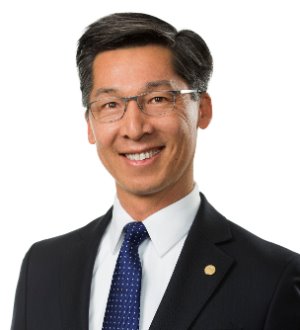Best Lawyers in Australia for Immigration Law
Practice Area Overview
Australian immigration law is a dynamic area of practice. The immigration landscape frequently shifts based on the political, economic, and social conditions in Australia, as well as in key migrant source countries. As the Migration Act provides a legal framework for changes in law and policy to be more rapidly made by regulations and legislative instruments, there can be a high level of legislative and policy change. As a result, practitioners typically focus on immigration law as a singular and specialized practice area, including merits and judicial review of migration decisions.
The Minister for Immigration and Border Protection, and Minister for Immigration, Citizenship and Multicultural Affairs are responsible for the immigration, citizenship, and customs border portfolios in Australia, which are administered through the Department of Home Affairs (the Department). The Minister for Immigration and Border Protection (or another Minister appointed to administer the Migration Act) has a broad number of personal and ‘non-compellable’ powers under the Act.
Australia’s permanent migration program is tightly controlled by the government, with strict visa planning levels set each financial year. Conversely, the temporary visa program is largely demand driven and fluctuates based on Australia’s economic conditions and immigration policies as well as conditions in source countries.
In general, the permanent migration program is comprised of the:
- Skilled migration program
- Family migration program
- Special eligibility program
- Humanitarian program for asylum seekers and refugees
- Most temporary residents in Australia are either:
- Visitors for tourism or business purposes
- New Zealand citizens, who can freely travel to and remain temporarily in Australia under a long-standing reciprocal Trans-Tasman travel arrangement
- Students
- Working holiday makers
- Sponsored Temporary Work (subclass 457) visa holders, or more recently, Temporary Skill Shortage (subclass 482) visa holders
Australian immigration law has a strong compliance focus. All non-Australian citizens require an appropriate visa to enter and remain in Australia, and are subject to detention and removal from Australia should they overstay or have their visa cancelled. Specific immigration bars also may be imposed in these circumstances, including a permanent ban for visas cancelled on ‘character’ grounds.
Australian employers are subject to strict civil and in some cases, criminal, penalties if found to employ a non-citizen without a visa or in breach of visa conditions. Employers sponsoring foreign workers under temporary work programs are also subject to additional sponsorship obligations which, if breached, can lead to significant financial penalties for both individuals and the sponsoring business.
Information sharing is common between the Department and other government agencies such as the Fair Work Ombudsman, the Australian Tax Office, the Australian Securities and Investments Commissions, and the Australian Federal Police. This requires visa holders and sponsoring employers to have robust processes in place to ensure that they remain compliant with Australia’s immigration laws.
Select a location from the list below to find the best legal talent for your needs.
Cities
Lawyers who have a subscription to profiles appear first.
Would you like to claim your lawyer profile?
Contact UsOur Methodology
Recognition by Best Lawyers is based entirely on peer review. Our methodology is designed to capture, as accurately as possible, the consensus opinion of leading lawyers about the professional abilities of their colleagues within the same geographical area and legal practice area.
The Process
Best Lawyers employs a sophisticated, conscientious, rational, and transparent survey process designed to elicit meaningful and substantive evaluations of the quality of legal services. Our belief has always been that the quality of a peer review survey is directly related to the quality of the voters.














